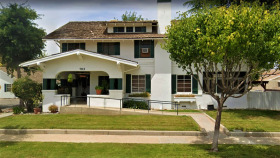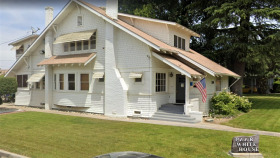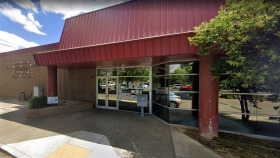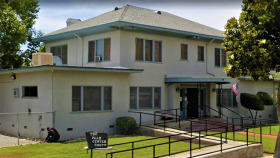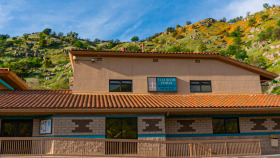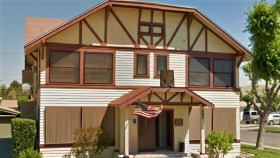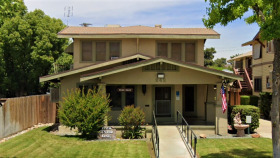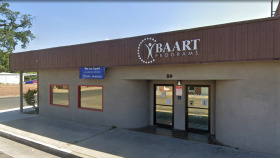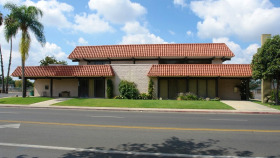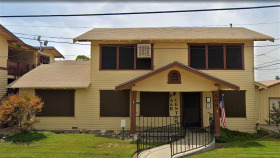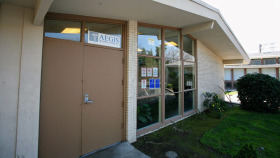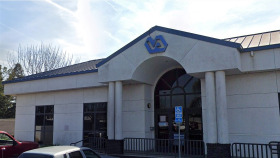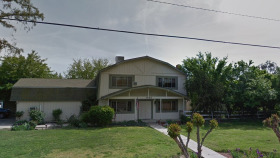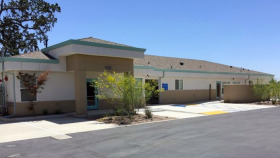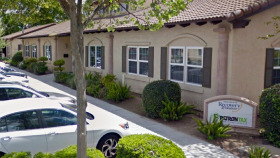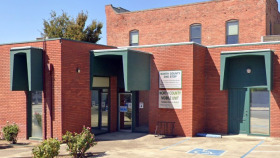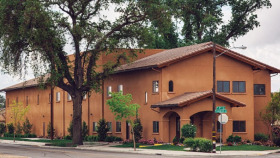Substance Abuse Statistics in Porterville, CA
The following statistics illustrate the extent and impact of drug and alcohol misuse in Porterville, Tulare County, and the corresponding region:1,2
In 2020, 174 people in Wake County died as a result of opioid use.
Less than 1% of residents 12 years and older reported heroin use in the past year from 2016 to 2018.
About 1% of residents 12 years and older reported methamphetamine use in the past year from 2016 to 2018.
About 4% of residents 12 years and older reported pain reliever misuse in the past year from 2016 to 2018.
- About 39% of residents 12 years and older reported alcohol use in the past month from 2016 to 2018.
- Close to 21% of residents 12 years and older reported binge alcohol use in the past month from 2016 to 2018.
Levels of Care for Substance Abuse
Multiple levels of care exist for alcohol and drug rehab in California. Some residents require all levels of care during their journey to recovery, while others receive only the less intensive options.
Medical Detox
Detox is the process of safely and comfortably removing drugs or alcohol from your system while in a supervised medical setting. Many people choose a medical detox program to prevent severe withdrawal symptoms. This is often the first step in the recovery process, completed before transitioning into formal inpatient addiction treatment services.
Inpatient Care
An inpatient or residential setting involves living at an accredited rehab facility 24/7 to receive treatment for addiction. A combination of evidence-based interventions are provided, including individual and group therapy, nutritional counseling, and medication administration.
Partial hospitalization programs (PHPs)
PHPs are a type of outpatient treatment in California that often involve many of the same therapies and methods of inpatient care. The difference being that you only visit the drug rehab during scheduled session times, then you can return home.
Intensive Outpatient Programs (IOPs)
A step down from PHPs, IOPs are a type of outpatient treatment in California allowing you to attend onsite sessions for several hours a day, multiple days each week, while spending the rest of your time at home, working, or fulfilling other obligations.
Standard Outpatient
As the least intensive setting, standard outpatient care is appropriate for California residents who are highly motivated and have a strong support system. It involves just one or two hours of treatment per week.
Relapse Prevention
Aftercare, or relapse prevention, provides ongoing support after a rehab program is complete. Aftercare may include 12-step groups, non-12-step groups like SMART Recovery, ongoing therapy, sober living homes, and more.
How to Pay for Substance Abuse Treatment in California
Private Insurance
Every insurance provider in the U.S. is required by law to provide at least some coverage for mental health and substance abuse treatment. In California, residents should contact their insurance provider to confirm specific coverage with their carrier, including applicable copays.
Medi-Cal
Medi-Cal is California’s Medicaid program. Funded by federal and state taxes, this program pays for medical services for children and adults who have limited income. To qualify for Medi-Cal, California residents must meet income requirements and be one of the following: pregnant, responsible for a child under 21 years old, blind, disabled or a disabled family member, or 65 years or older.
California Medicare
California Medicare is a government program providing coverage to residents who are over the age of 65 or who have end-stage renal disease. California residents can use Medicare to cover the cost of rehab and other addiction treatment services; however, not all rehabs accept Medicare insurance.
Sliding Scale Payment Options
Sliding scale payment plans only charge California residents what they can afford, based on their income. To qualify, residents typically need to provide proof of income and assets.
TRICARE in California
California TRICARE (West Region) is a government program that provides health insurance for military personnel, veterans, and their dependents. TRICARE coverage includes addiction treatment services, such as rehab and medication-assisted treatment (MAT).
IHS-Funded Drug Rehabs
Drug rehab programs funded by the Indian Health Service provide free addiction treatment to California Natives and Indigenous peoples in the U.S.
Everything You Need to Know About Visiting Porterville, CA

The following travel tips may be useful if you are considering rehab in Porterville, CA, or planning to visit a loved one in rehab in the city:
- Places to explore include Veterans Park, Sunday Peak Trail, the Kings River Conservatory, Porterville Historical Museum, and Sequoia High Sierra Camp.
- Airports offering flights to and from the Porterville, CA region include Fresno Yosemite International Airport, Meadows Field Airport, and the Porterville Municipal Airport.
- Public transport options for travel within Porterville and nearby communities include the Porterville Transit and Tulare County Area Transit (TCaT).
- Porterville Transit offers bus service to important destinations including the Eastridge Shopping Mall, Walmart, Home Depot, Target, Sierra View District Hospital, Veterans Park, and Galaxy 9 Theatres.
- TCaT provides connections to Terra Bella, Springville, Woodville, Lindsay, and other communities in Tulare County.
- Taxis and Rideshare options like Uber and Lyft offer convenient and fast travel within Porterville as well as to and from surrounding communities.
- Porterville is not a very walkable city, and you may need a car to run most errands.
- Accommodations in Porterville include Airbnb, motels, and hotels. There are many budget-friendly options in Porterville such as America’s Best Value Inn, Motel 6 Porterville, Holiday Inn Express Porterville, and Best Western Porterville Inn.
California Alcohol and Drug Laws
California law includes the following policies related to substance abuse:1,2,3,4,5
California Employee Protections for Drug or Alcohol Rehab: California’s labor code requires employers with 25 or more employees to provide accommodation to staff who voluntarily choose to attend alcohol or drug rehab. This may include unpaid time off or use of sick or vacation time. Employees who wish to request time off for addiction treatment may be able to request it under the Family and Medical Leave Act or the California Family Rights Act.
Substance Abuse and Crime Prevention Act: This act provides treatment opportunities for individuals who are convicted of non-violent crimes. Eligible offenders may serve their time in drug treatment rather than in prison.
California Government Prevention and Care Services: Senate Bill 110 expanded these services to include contingency management (an incentivized treatment program) as a benefit covered under Medi-Cal. Patients who demonstrate substance-free behavior, such as drug-free urine tests, are rewarded with vouchers or gift cards.
California Ethical Treatment for Persons with Substance Use Disorder Act: This bill protects residents undergoing addiction treatment by requiring alcohol and drug rehabs in California to adopt a client bill of rights that seeks to ensure every client is are treated with dignity, honesty, and respect.
California’s Good Samaritan Law: This law encourages California residents to call 9-1-1 if an overdose is suspected. It protects individuals who seek emergency medical care for overdose from legal repercussions for possession of a controlled substance/drug paraphernalia or providing alcohol to minors.
Resources
- California Overdose Surveillance Dashboard (n.d.). Tulare County Dashboard
- Substance Abuse and Mental Health Services Administration. (n.d.). 2016 -2018 NSDUH Substate Region Estimates – Tables.


